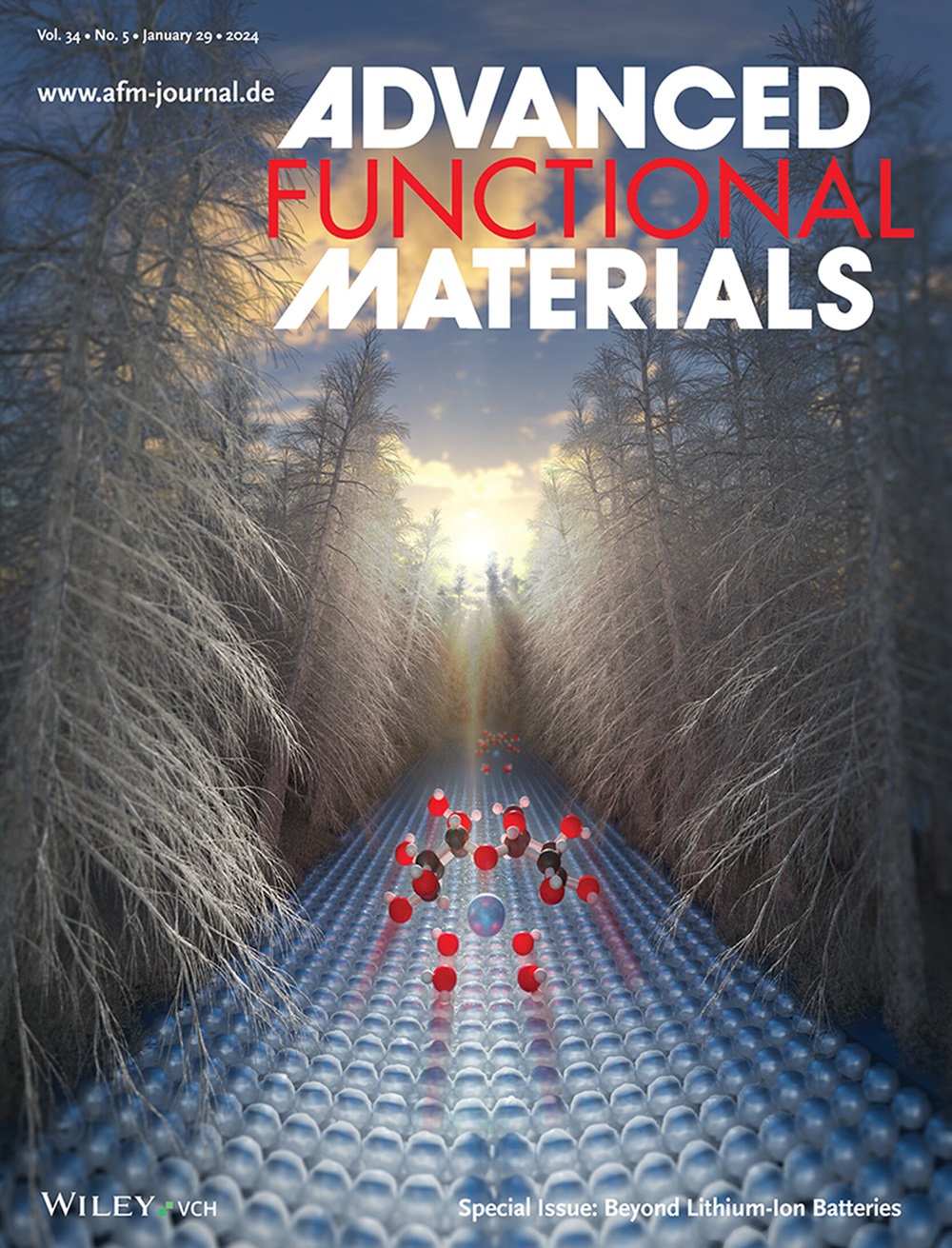Multiple Hydrogen Bonded 3D‐Printed Elastomers with Enhanced Toughening by Photothermal Dual Curing for Customizable Biomimetic Flexible Grippers
IF 18.5
1区 材料科学
Q1 CHEMISTRY, MULTIDISCIPLINARY
引用次数: 0
Abstract
This study develops low‐viscosity, two‐component polycaprolactone (PCL)‐based 3D‐printed elastomers via photothermal dual curing. To prevent a sudden increase in viscosity from the direct introduction of hydrogen bonding in the oligomer, multiple hydrogen bonding components are innovatively added into the resin system in the form of the chain extender 12NH. The samples undergo thermal treatment after light curing. Incorporating 12NH, which retains unreacted isocyanate functionality, into the elastomer's macromolecular long‐chain forms an interpenetrating network of multiple hydrogen bonds, dynamic covalent bonds, and a micro‐phase separation. The resultant elastomers exhibit superior mechanical properties, achieving a tensile strength of 43.5 MPa and tensile toughness of 213.1 MJ m多种氢键3D打印弹性体,光热双固化增强增韧,可定制仿生柔性夹具
本研究通过光热双固化技术开发了低粘度、双组分聚己内酯(PCL)基3D打印弹性体。为了防止在低聚物中直接引入氢键而导致粘度突然增加,在树脂体系中创新性地添加了多种氢键组分,以扩链剂12NH的形式。样品在光固化后进行热处理。将保留未反应异氰酸酯功能的12NH加入弹性体的大分子长链中,形成多个氢键、动态共价键和微相分离的互穿网络。合成的弹性体具有优异的力学性能,抗拉强度为43.5 MPa,抗拉韧性为213.1 MJ m−3,同时保持较高的生物相容性。这些性能超过了现有的基于PCL的还原光聚合3D打印弹性体。随后,复杂的晶格结构和仿生柔性夹具被成功打印,验证了它们在需要高效抓取和快速响应的应用中的潜力。该研究为设计3D打印弹性体提供了新的概念,优化了高强度和韧性,精密成型和生物安全性之间的平衡,促进了柔性机器人和植入式医疗设备定制制造的发展。
本文章由计算机程序翻译,如有差异,请以英文原文为准。
求助全文
约1分钟内获得全文
求助全文
来源期刊

Advanced Functional Materials
工程技术-材料科学:综合
CiteScore
29.50
自引率
4.20%
发文量
2086
审稿时长
2.1 months
期刊介绍:
Firmly established as a top-tier materials science journal, Advanced Functional Materials reports breakthrough research in all aspects of materials science, including nanotechnology, chemistry, physics, and biology every week.
Advanced Functional Materials is known for its rapid and fair peer review, quality content, and high impact, making it the first choice of the international materials science community.
 求助内容:
求助内容: 应助结果提醒方式:
应助结果提醒方式:


